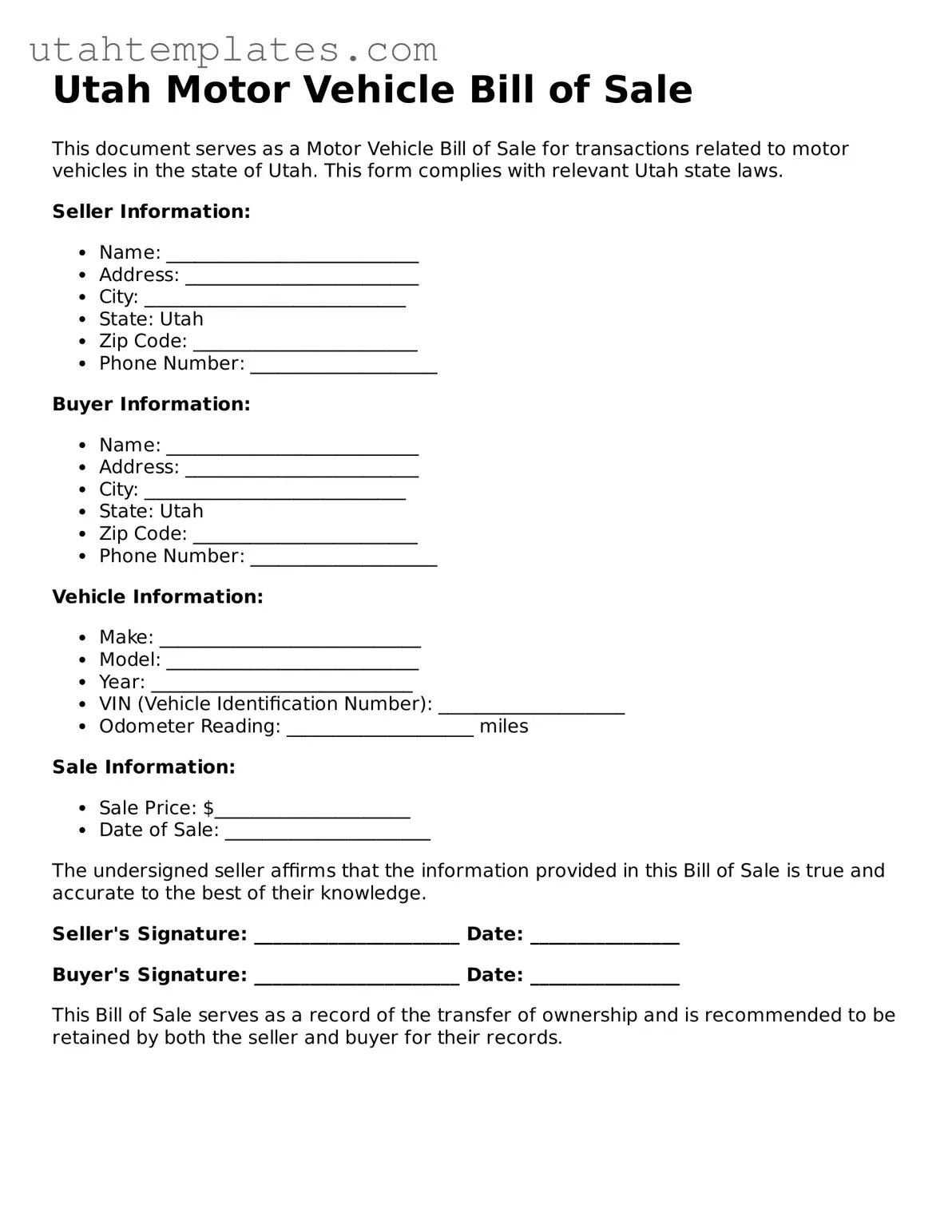Free Motor Vehicle Bill of Sale Form for Utah
The Utah Motor Vehicle Bill of Sale form is a legal document that records the transfer of ownership of a vehicle from one party to another. This form serves as proof of the sale and includes important details about the vehicle and the buyer and seller. Understanding how to properly complete this form is essential for anyone involved in a vehicle transaction in Utah.
Launch Motor Vehicle Bill of Sale Editor Here

Free Motor Vehicle Bill of Sale Form for Utah
Launch Motor Vehicle Bill of Sale Editor Here
Need to check this off quickly?
Fill out Motor Vehicle Bill of Sale online without dealing with paper.
Launch Motor Vehicle Bill of Sale Editor Here
or
Free PDF File
